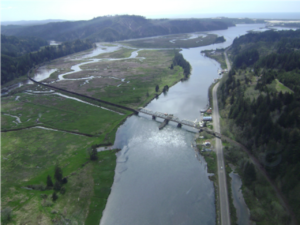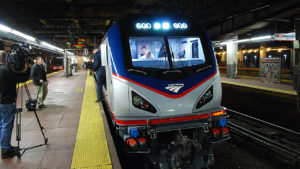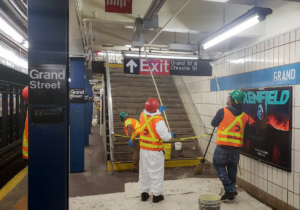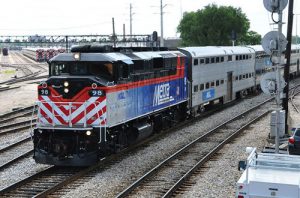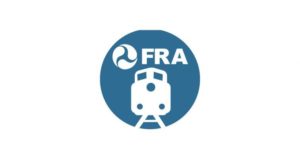Regulatory overreach subject of House hearing
Written by adminRailroads, Pipelines and Hazardous Materials Subcommittee Chairman Bill Shuster (R-PA) has pointed out the need to rein in out-of-control federal regulations, citing Federal Railroad Administration's implementation of rail safety provisions that exceeded the agency's congressional mandate. A hearing of the Subcommittee focused on the implementation of the Rail Safety Improvement Act of 2008. In accordance with that law, the FRA published a final rule in January to implement requirements for freight and passenger railroads to install positive train control systems by December 31, 2015. However, there are concerns that FRA's rule exceeded the scope of its mandate. RSIA moved forward in part due to a tragic train accident in Chatsworth, Calif. on September 12, 2008, that resulted in 25 fatalities and 135 additional injuries. Ms. Mackenzie Souser from Camarillo, Calif. whose father was killed in the tragedy, testified before the Committee on March 17. "My thoughts and prayers are with the victims of this accident, in particular Mackenzie, who is the daughter of Doyle Souser, who was killed in the crash," said Shuster during his opening statement. Shuster stressed the need to continue to ensure the safety of the nation's railways, as set forth in RSIA, but noted that regulatory overreach could threaten the industry and the economy for very little safety benefit. The following continues Shuster's opening statement from the hearing: "Throughout our government, I am deeply concerned with the regulatory overreach that cripples our economy, stifles job creation and ties our nation up in red tape. I applaud President Obama for his recent comments on reducing the regulatory burden and for calling for a government-wide review of burdensome regulations. However, it seems like every time I turn around, another agency is moving forward with new cumbersome and expensive rulemakings. There is a significant disconnect between the President's words and the action's of the Administration's agencies. "Positive Train Control is an example of regulatory overreach that I would like to focus on here today. PTC describes technologies designed to automatically stop or slow a train before certain accidents caused by human error. "FRA's PTC rule has raised great concern and strong objections, specifically because the FRA regulation appears to have gone beyond the scope of the Rail Safety Improvement Act PTC mandate. "FRA's own cost-benefit analysis of its final rule implementing PTC states: ‘an immediate regulatory mandate for PTC could not be justified based upon normal cost-benefit principles relying on direct safety benefits.... The safety benefits of PTC systems were relatively small in comparison to the large capital and maintenance costs.' "The FRA estimated a cost-benefit ratio of 15:1 for required installation of PTC systems when it issued its Notice of Proposed Rulemaking, and an even higher cost-benefit ration of 22:1 in its final rule. The 20-year costs are estimated to be $13.21 billion. "Another important issue is the base year used for PTC route determination. In its final rule, the FRA orders railroads to install PTC on rail lines that carried toxic-by-inhalation materials in 2008. Yet nothing in the Rail Safety Improvements Act calls for using 2008 as the base year - only the 2015 implementation date is mentioned in the statute. "Using 2008 as the base year makes little sense because TIH traffic patterns in 2015 will be vastly different than they were in 2008. If left unchanged, the 2008 baseline year will mean railroads may have to spend hundreds of millions of dollars to deploy PTC on thousands of miles of rail lines on which neither passengers nor TIH materials will be moving in 2015. "We simply must get out-of-control government regulations under control and today's hearing is one step in that direction."

